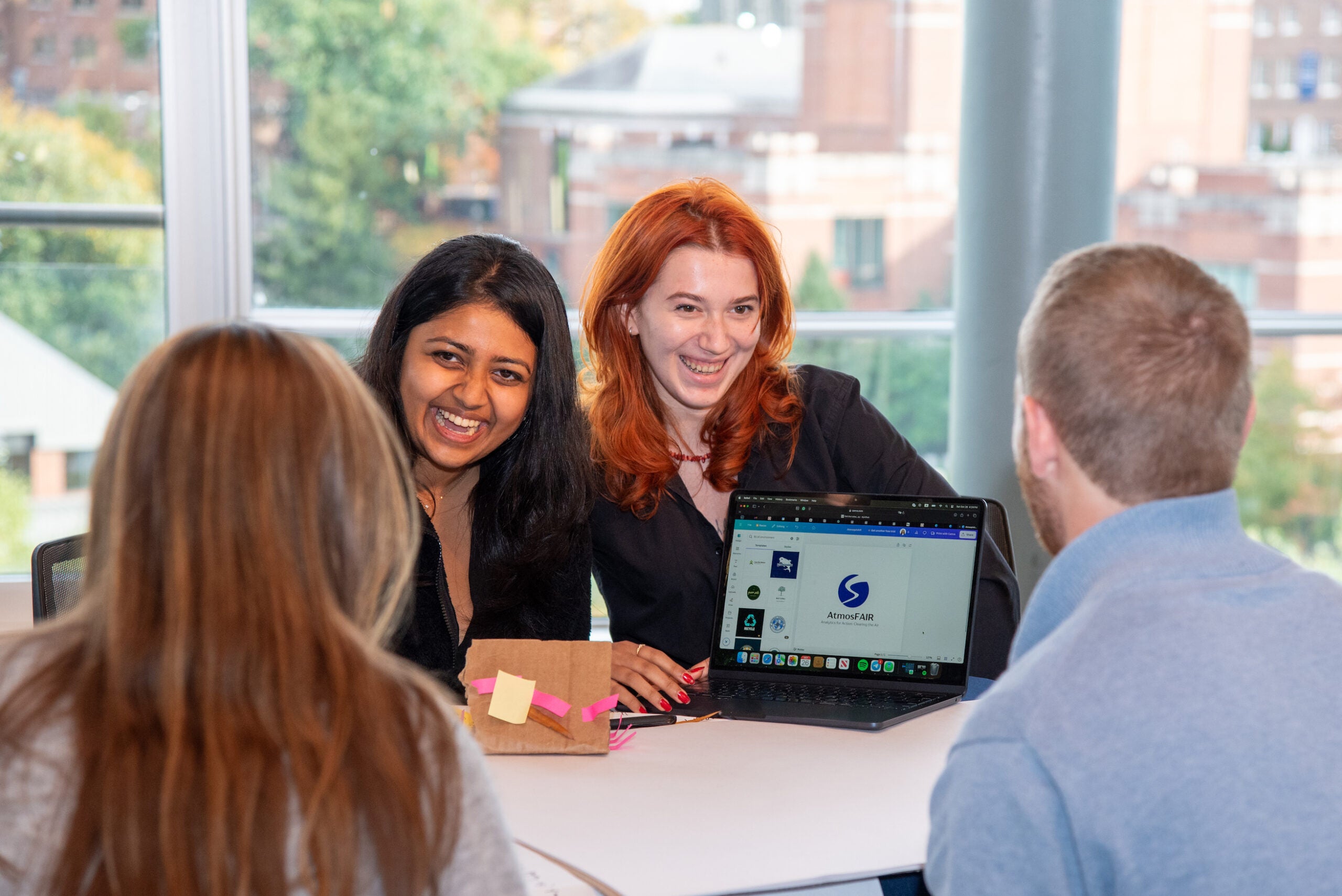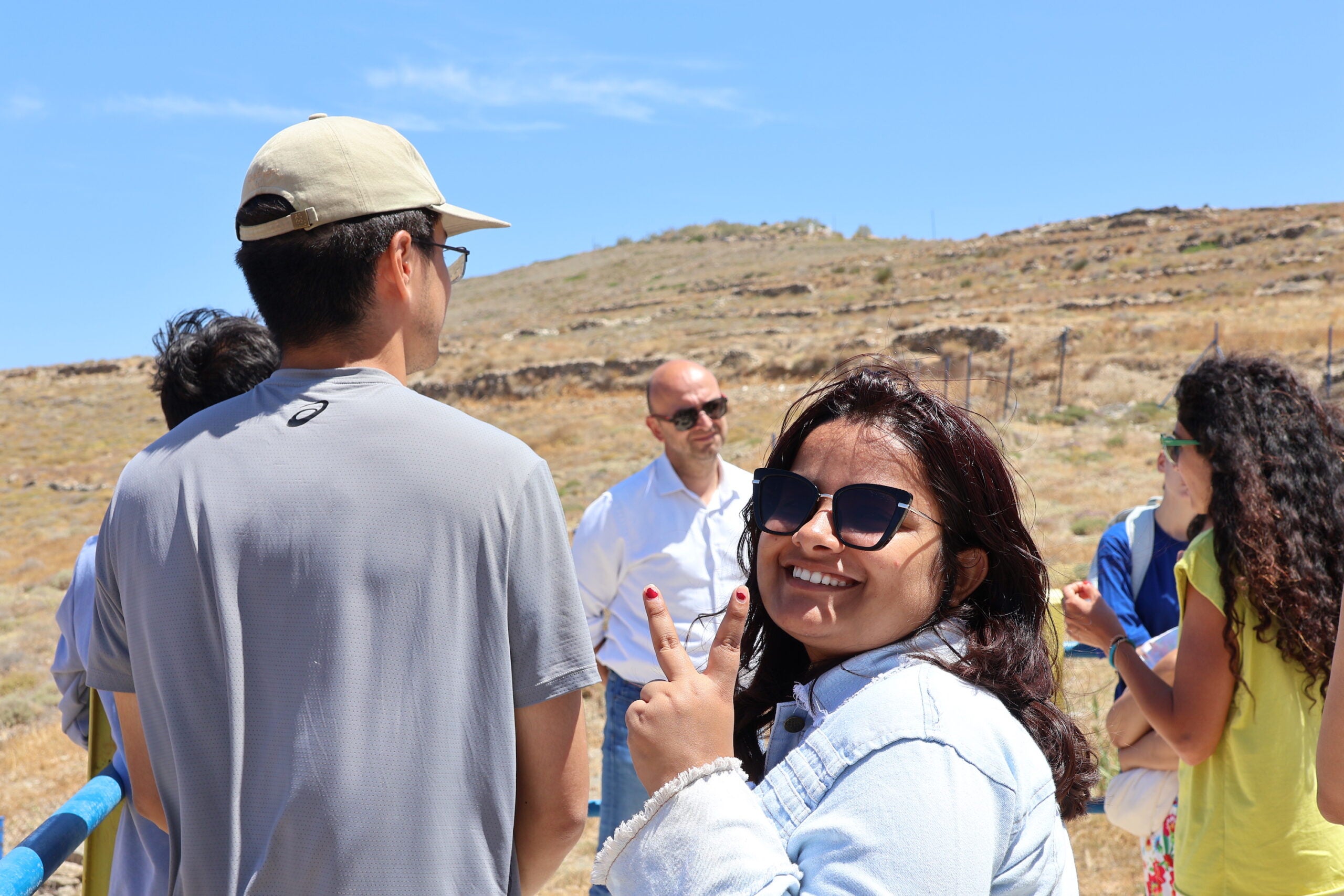Curriculum
Whether you want to conduct environmental science, drive an environmental justice movement, pursue environmental law and policy, or be the next voice for the environment through environmental culture, the BS-ES program can help you chart your course toward positive impact.
BS in Environment & Sustainability
Explore RequirementsMinor in Environment & Sustainability
Explore RequirementsOur Directors’ perspectives on the Environment & Sustainability Program
Hear from the Directors of the Environment & Sustainability Program at Georgetown
Areas of Study
Program highlights in hands-on learning
You’ll gain valuable hands-on experience and develop professional skills throughout your four years by earning credits in and outside of the classroom in internships, environmental immersions, capstones, and more. In addition to classroom learning, here are a few core learning experiences that make the degree unique:
Students have the incredible opportunity to participate in at least one environmental immersion experience. These experiences can take place abroad, within the United States, or even in Washington, D.C. These immersions are not only intercultural experiences, but also provide in-depth knowledge and practical application of environmental and sustainability concepts. While we strongly encourage and advise all students to participate in an environmental immersion, it will not be a mandatory requirement. We have partnerships with immersive programs and we are actively developing new collaborations around the world in places like Doha, Qatar, Fiesole, Italy, Greece, and more.
Professional development experiences are integral to our program. We’ve broadened the concept beyond traditional internships to offer diverse ways for students to gain professional skills and experience. All students will have a credit-bearing professional development experience, which will include a professional internship (internal or external to Georgetown) and a corresponding seminar.
Peer Leadership is a vital part of our program, empowering students to become effective environmental leaders. In the third and fourth years, all students participate in a form of credit-bearing student peer leadership like peer teaching, mentoring or experience creation. Instruction and mentoring in peer leadership are built into credit-bearing work. This experience includes a faculty-led foundation course in peer mentoring and teaching tailored to specific roles as well as practical assignments and reflections. These six credits contribute to personal and professional development, offering a unique opportunity to learn and grow as environmental change leaders within the program.
In the third year of the BS-ES degree, students will choose a custom pathway to organize the remainder of their coursework. Given the interdisciplinary nature of the BS-ES degree, students will be encouraged to build their custom pathway around the nexus of two areas of work (E.g. Food & Policy). In working with their advisors students will go through a process of proposing their intended areas of focus.
During your fourth year, you will complete a research capstone project or an impact project in the arts, education, activism, or community engagement! You’ll conceptualize your project concept in close collaboration with fellow students and faculty mentorship, and in your final semester, develop and/or implement, and present your work!
Your Journey Can Start Now!
There’s time to pursue the BS-ES! We’re here to facilitate your journey toward environmental leadership!


